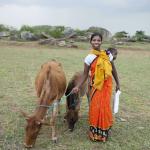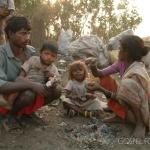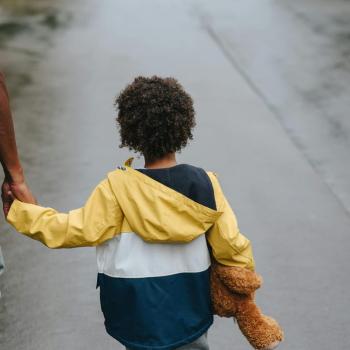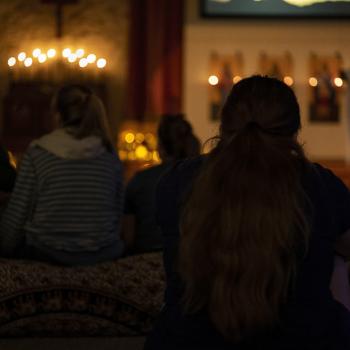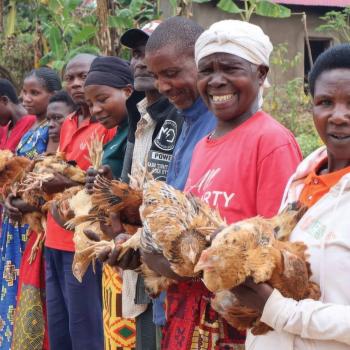Manjira’s face lit up when she saw the Gospel for Asia-supported pastor. It had been only a few days since their last meeting where he had given her—and many others like her—a gift she couldn’t afford: a blanket.
“I don’t have enough blankets to keep my children warm in winter,” the 32-year-old woman expressed. “But your church has given me a beautiful and large size blanket that helps us sleep peacefully. I am very much thankful to your church.”
Like many women in Asia, Manjira lives alone with her four children. Some women are widowed and rejected by their relatives, while other families are torn apart by drug and alcohol addictions, gambling and affairs.
Manjira is one of the abandoned. Her husband, a heavy addict, left them to fend for themselves.
That was more than two years ago.
Manjira doesn’t know where her husband is, or even if he’s still alive.
Since he left, Manjira has found it difficult to provide for all her children’s needs. It’s hard to imagine one woman laboring to provide food, clothing, medicine, school supplies, housing and so much more, all while caring for children who are too young to be left alone. Help is difficult to come by, and Manjira is not the only person who has struggled under poverty’s oppressive yoke.
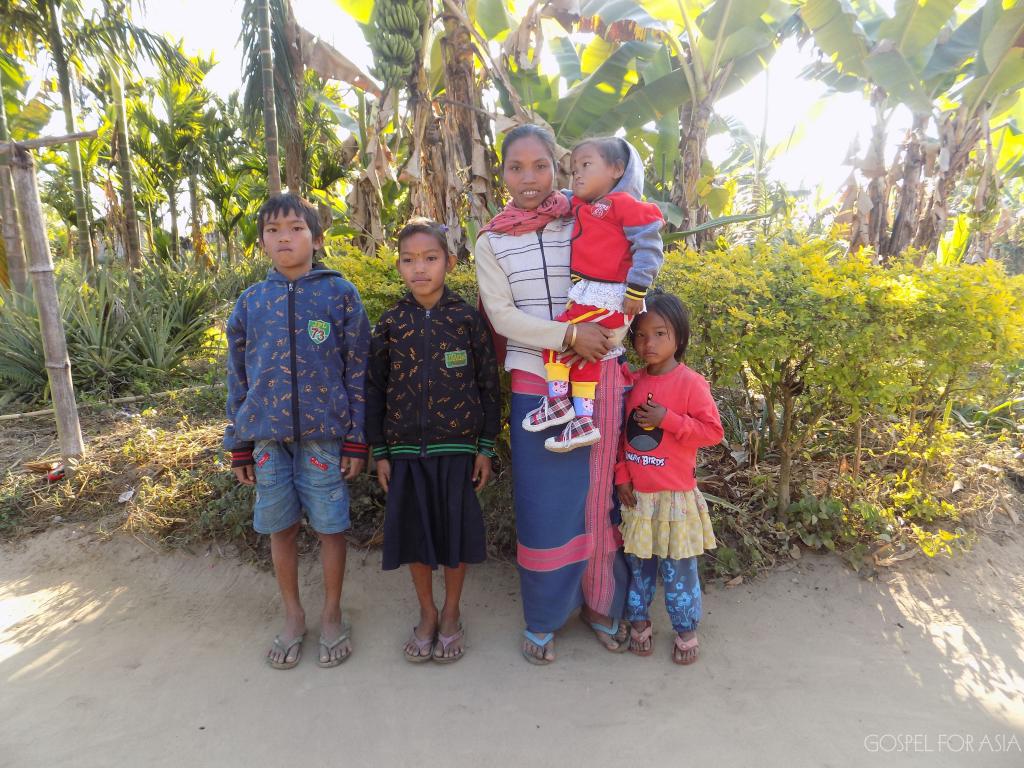
A Common Struggle
Here at Gospel for Asia, we have heard and read story after story of people in need. Stories of people stitching burlap bags together so their children have something to sleep under. Stories of people struggling who don’t have proper shelter for their families. Stories of people who don’t want to go outside because it is so cold.
And it moves us.
The thing is, most of us don’t like to be cold if we can help it. Even those who love the frigid outdoors can’t stay out there indefinitely. Widows and young men alike don’t want to freeze. They don’t want to get sick. They don’t want to die or see their loved ones shivering through the night, either.
So they try to stay warm.
Staying warm. It doesn’t sound so difficult for most people in the U.S., who might even open the windows on a cool night to let some fresh air in, but the story is different for those who don’t even have windows to open. Scanty walls made of tarp or bamboo don’t work the best at keeping out the evening chill. Frigid air creeps through every entrance, seeking to sap warmth from everyone and everything inside.
So we turn on the heater. We pile on the blankets. We wear fuzzy slippers and we go on with life.
Meanwhile, in Asia, poor families build fires—but only if they can afford it. The long task of collecting firewood every day, every week, can be quite taxing. Those who don’t have wood may buy kerosene, but supplies must be rationed. Others make flammable patties from cow dung just to heat their cooking fires and boil a small cup of tea.
Poverty is endemic, especially when money is wasted on drugs instead of fruitful endeavors, as was the case in Manjira’s family.
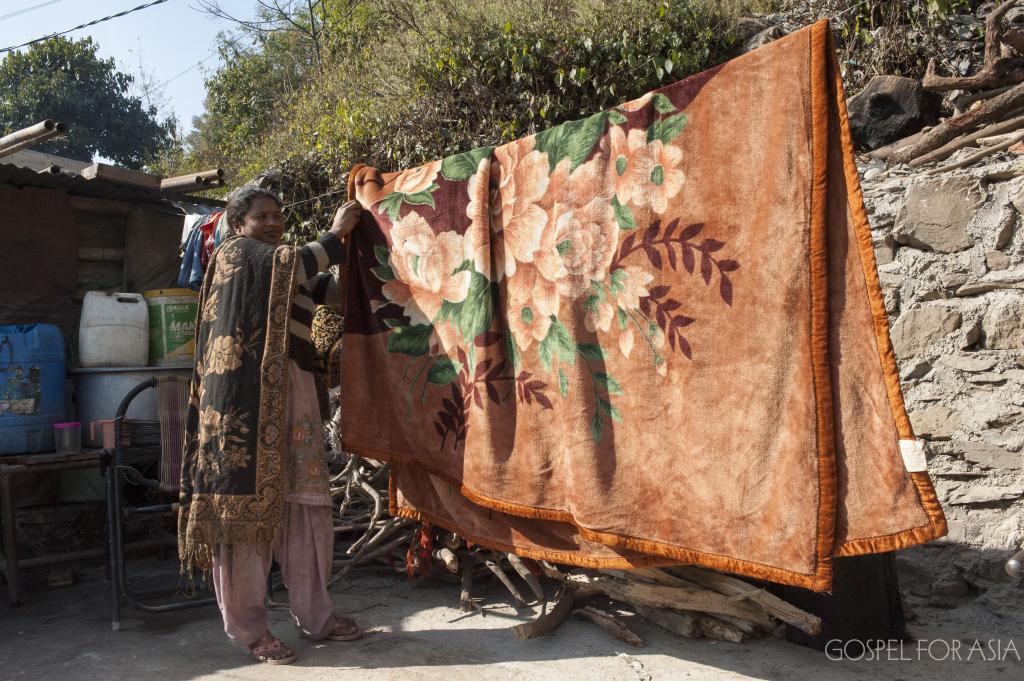
Why so poor?
Though Manjira has struggled greatly since her husband left, it’s hard to imagine the family was financially much better off when he was around.
We know Manjira’s husband was a drug addict, and though addictions are not always the cause of a family’s poverty, they regularly perpetuate it.
Thing is, sometimes people start taking drugs or drinking alcohol to hide the pain they feel from hunger and cold—two common problems plaguing the poor. Few things warm your body quite as quickly as a glass of alcohol, and that temporary salve is much cheaper, in the short run, than trying to save for a blanket or build a better home. Sadly, what may start as a desire to numb the pain easily becomes an irresistible and expensive part of many people’s lives.
When families are poor to begin with, addictions can easily lead to hungry bellies and naked bodies.
We don’t know how or why Manjira’s husband first turned to drugs, but we know it eventually tore his family apart.
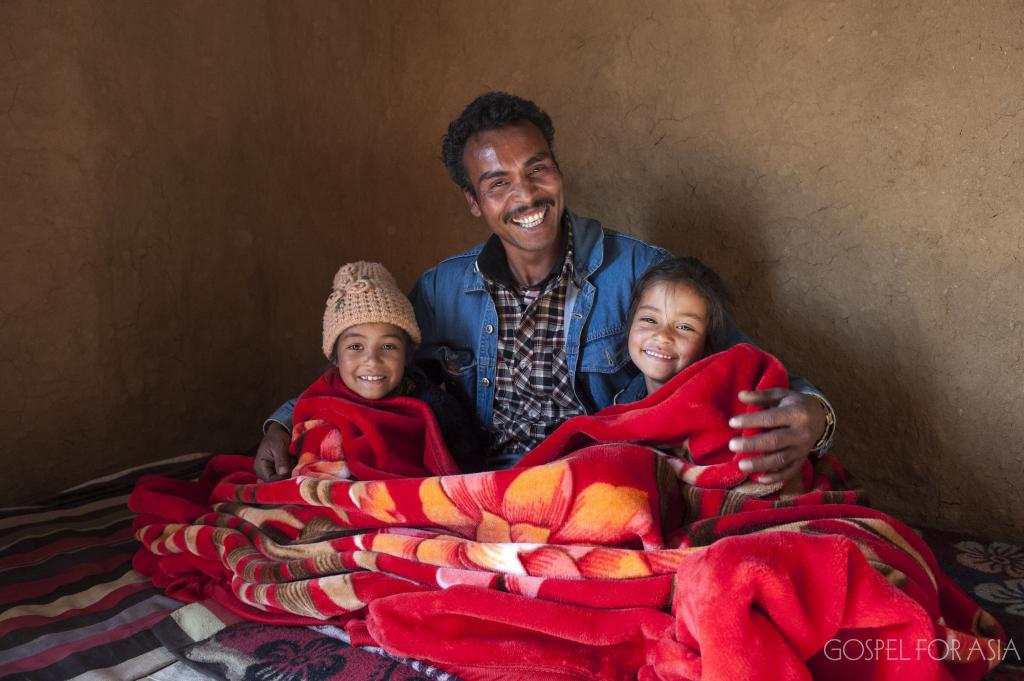
How Could a Blanket Help?
Now, we know that giving someone a blanket isn’t a cure-all for every poverty and woe. Blankets don’t turn irresponsible drug addicts into compassionate parents; they don’t help children understand their arithmetic; and they don’t make fields produce grain.
But a blanket can go a long way toward showing someone they are loved and cared for, and we think they’re worth it. For Manjira, the free gift of a blanket showed her an even greater gift—the love of Jesus. Now she knows that in Christ, she has a husband who will never leave her or forsake her. We praise the Lord for that.
At Gospel for Asia, we are thankful we’ve seen so many hearts impacted through these simple gifts. As we snuggle into our warm beds at night, we know there are hundreds of thousands of other people enjoying the warmth of a soft, plush blanket given to them in the name of Jesus by our field partners.
In 2016 alone, God enabled us to give out more than 170,000 blankets to needy individuals like Manjira. That’s 170,000 people sleeping better at night; 170,000 people getting sick less often, 170,000 people finding comfort; and 170,000 people who, perhaps for the first time, will experience a free gift from the One who gave us the greatest Gift of all.
=====
Click here, to read more blogs on Patheos from Gospel for Asia.
Go here to know more about Gospel for Asia: GFA.net | GFA Wiki | GFA Flickr


